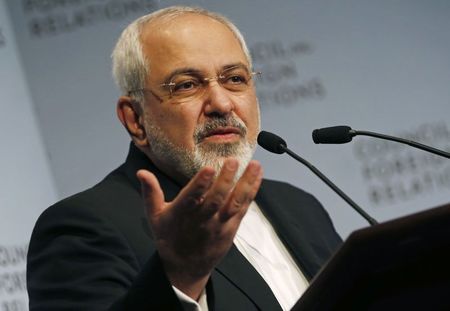LATEST: Presidential Advisor Warns of Continued Unemployment, Despite Claims of Growth
With no sign of progress towards a comprehensive nuclear agreement by a November 24 deadline, Iran’s Foreign Minister Mohammad Javad Zarif has put out a defiant statement challenging US-led sanctions and promising Tehran’s continued nuclear development: “The measures that the US and Europe have so far taken to stop Iran’s activities have had no result but progress in the country’s nuclear technology.”
The last set of negotiations between Iran and the 5+1 Powers (US, Britain, France, Germany, China, and Russia) ended in New York on September 27 after 10 days. Iranian negotiators, including Zarif, said that a “large gap” still remained on key issues such as Iran’s number and level of centrifuges for uranium enrichment.
Zarif warned on Monday that failure to reach an agreement would not hold back Iran’s efforts for a self-sufficient civil nuclear program: “Depriving Iran…cannot be a solution to the issue because Iran has achieved the nuclear know-how and technology.”
The Foreign Minister accused “regional countries” — i.e. Israel — of fueling a “fabricated crisis” to cover their “short-term strategic goals”.
He then tried to split the European participants in the talks from the US, saying they could play a “serious and leading” role in striking a balance between the two sides.
Presidential Advisor Warns of Continued Unemployment, Despite Claims of Growth
President Rouhani’s economic advisor, Massoud Nili, has said that declarations of renewed growth in Iran do not mean relief in the rising unemployment rate.
The Government said that the economy expanded 4.6% in the summer, reversing two years of decline. However, Nili said:
Economic institutions do not increase their work force during stagflation [unemployment combined with inflation] due to the existence of labor laws, so we will not witness a decrease in the unemployment rate following economic growth for some time.
IAEA Team Arrives in Tehran for Nuclear Talks
A delegation from the International Atomic Energy Agency, led by Deputy Director General Tero Varjoranta, arrived in Tehran on Tuesday for talks with Iranian officials.
The discussions are likely to center on guidelines for inspections and supervision agreed by the two sides in November and February.
Last month, the IAEA said Iran had fulfilled three of five areas in the agreement. However, it expressed concern that inspections of the Parchin military base, where Western powers have suspected Iran of carrying out tests relating to a militarized nuclear program, had not been confirmed.
See Iran Daily, Sept 6: IAEA Raises Concerns About Tehran’s Cooperation
The IAEA’s complaints on the other two areas are linked to a sensitive area of the ongoing negotiations between Iran and the 5+1 Powers — the “possible military dimensions” of its program.
The IAEA and his team are scheduled to resume talks with Iran’s Atomic Energy Organization’s officials today.
New round of talks will cover two measures of five practical measures in third step of agreement between Iran and IAEA.
Iran and IAEA signed a deal on May 20, 2014 including 13 measures in two first steps and 5 more practical measures in third step. The first two steps have already been implemented by Iran and the two sides will discuss ways to implement these measures.

